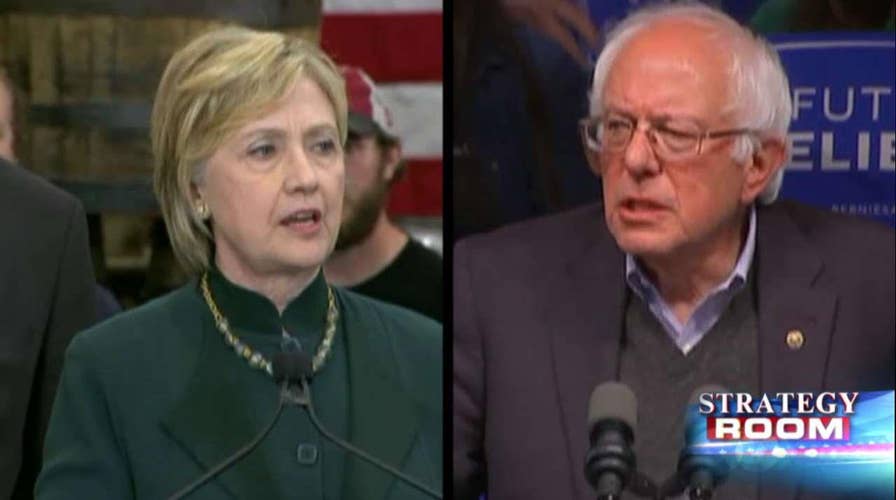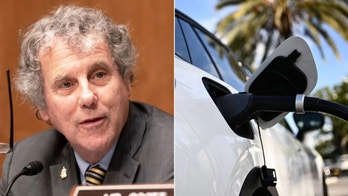Rocky road ahead for Clinton
Strategy Room: Joe Lestingi and Amos Snead on Sanders' win in Indiana complicating Clinton's efforts to turn focus to Trump
Sen. Bernie Sanders’ upset victory in Indiana is likely to extend the Democratic primary battle for at least another month, complicating Hillary Clinton's efforts to focus on presumptive GOP nominee Donald Trump even as she remains a virtual lock for her party's nomination.
After a losing streak last month, Sanders predicted he'll follow up his Indiana win with "more victories" in the coming weeks. The race turns next week to West Virginia, where polls show Sanders in the lead, and then to Kentucky and Oregon where he could face a similar reception.
“I understand that Secretary Clinton thinks that this campaign is over. I have some bad news for her,” the Vermont senator said Tuesday night in his victory speech.
“Next week we are going to be in West Virginia. We think we have a real shot to win in that great state. Then we are going to Kentucky, and I think we have a great chance there as well. … I sense some great victories coming.”
Sanders has no chance of winning enough pledged delegates to surpass Clinton and secure the Democratic nomination before the party’s July nominating convention -- even if he sweeps the party's dozen remaining contests.
Sander has 1,400 pledged delegates, compared with 2,202 for Clinton, with 2,383 needed to win.
He has repeatedly said his strategy now is to try to win as many remaining pledged delegates as possible, while also trying to flip the so-called superdelegates who support Clinton to reach the 2,383 mark at the convention.
However, on Tuesday night Sanders hinted his goal is to remain in the race to help defeat Trump in November by energizing Democratic voters, despite calls within his party for him to exit.
“What we will do in next six weeks is good for the Democratic Party, and it will result in a higher voter turnout,” he said. “Democrats and progressives win elections when the voter turnout is high. Republicans win elections when the voter turnout is low.”
At the same time, Sanders' prolonged campaign could hinder Clinton's efforts to pivot to the general election, something Trump already is doing after knocking all his remaining rivals out of the race.
Democratic strategist Karine Jean-Pierre told Fox News on Wednesday that she thinks Sanders will and should stay in the race to prove the depth of his voter support so he can persuade Clinton and other establishment Democrats to adopt more of his progressive agenda.
“Exit poll after exit poll has shown that Democrats are excited and engaged about this primary,” she said. “And they’re happy he stayed.”
Clinton has faced a hostile reception in West Virginia, coal country where voters appear infuriated over her comment in March about plans to "put a lot of coal miners and coal companies out of business."
In a face-to-face exchange Monday with an emotional, unemployed West Virginia coal miner, Clinton apologized and suggested the comment was taken out of context.
But the Sanders campaign hopes the state’s anti-Clinton sentiment will carry over to neighboring coal state Kentucky.
Sanders could also do well in liberal Oregon.
The self-proclaimed democratic socialist has stayed in the race in large part by running to the left of Clinton on such issues as free college education and more social and economic equality. And Oregon is one of the most progressive states in the country.
“I think Bernie Sanders is going to stick it out and go all the way to the end,” Ohio state Sen. Capri Cafaro, a Democrat, told Fox News on Wednesday. “I think that’s what his supporters expect from him.”





